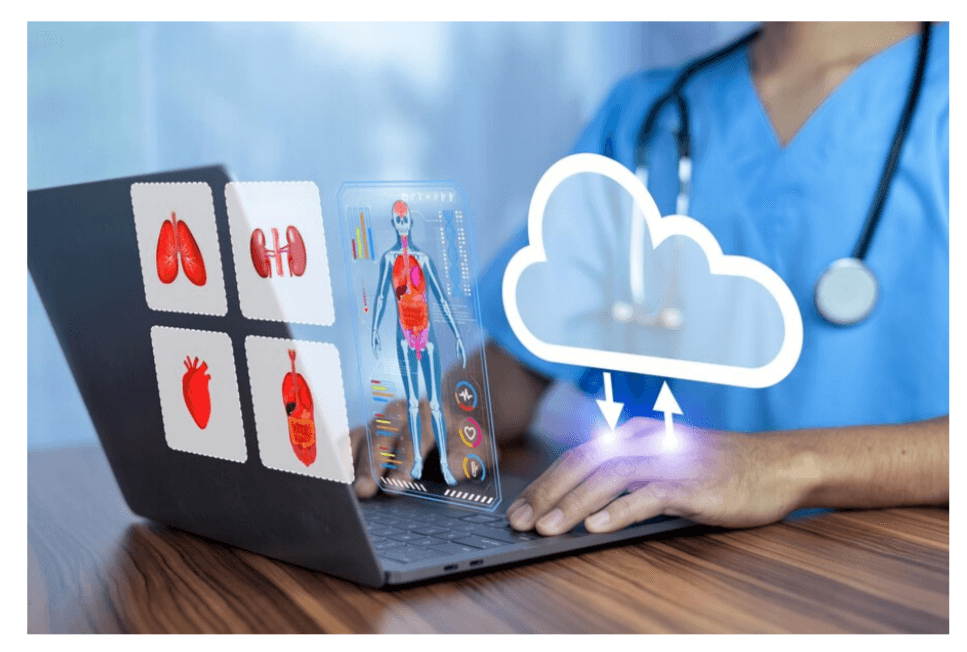The days of patients being merely passive healthcare consumers are long gone. Today, they demand customized care similar to any other service they receive. To meet this demand, healthcare institutions must use technology to enhance patient experience and care coordination. One effective tool for bridging the gap between patients and healthcare professionals is Salesforce Health Cloud. It gives healthcare businesses the ability to create personalized patient journeys and improve the standard of treatment provided.
The integrated platform of Health Cloud allows healthcare providers to get a comprehensive view of patient data and deliver individualized care plans. It synchronizes information in electronic health records, wearable devices and other information systems to equip healthcare professionals with a comprehensive, real-time picture of a patient’s health. This enables providers to deliver quality patient care. The transition to personalized patient care from an episodic one is crucial in improving healthcare outcomes and building strong relationships between providers and patients.

Top Features of Salesforce Health Cloud
In contrast to a generic cloud that offers conventional capabilities, Salesforce Health Cloud equips healthcare firms with features that best meet the demands of the sector. Here are the most important features offered by Health Cloud:
- Care Team Collaboration
Health Cloud allows care teams to work together more effectively by exchanging patient updates and data in real time. This feature of Health Cloud guarantees that nurses, physicians, experts, and family members are all on the same page, lowering the probability of mistakes or miscommunication.
- 360-Degree Patient View
Health Cloud offers a 360-degree view of patients including clinical data, interactions, and demographics. This visibility helps care providers form an in-depth understanding of the patient’s profile and connect it to relevant clinical and non-clinical data. Care providers are empowered to make a shift towards value-based care that enhances collaboration and improves patient engagement.
- Omnichannel Patient Engagement
Health Cloud empowers patients by giving them the resources they need to actively participate in their care. Patients can communicate with their healthcare team, make appointments, and view their medical records via patient portals such as SMS, email, and mobile apps. This improved engagement promotes trust and increases patients’ adherence to treatment plans.
- Einstein Analytics
Healthcare businesses enhance patient outcomes, optimize financial performance, and streamline operations by utilizing Einstein Analytics for Healthcare. This is achieved via the advanced predictions and insights offered by Einstein. These allow healthcare providers to stay ahead of patient needs, tailor treatments, and make informed decisions, resulting in better care quality.
Benefits of Salesforce Health Cloud
Being a reliable CRM of the healthcare industry, Health Cloud offers a range of benefits that allow healthcare organizations to create tailored patient journeys and deliver proactive care. Here are the key advantages of Health Cloud:
- Provides Personalized Care
Health Cloud allows physicians to monitor specific patient cases and rank tasks according to urgency. Healthcare providers can categorize populations by demographics, risks, or condition by leveraging advanced case management. This allows the providers to offer tailored care to each patient based on their existing health conditions and history of treatments.
- Helps Patients Reach their Health Goals
Salesforce Health Cloud enables healthcare decision-makers to make correct diagnosis and treatment decisions. Real-time access to their health data empowers patients to monitor important health metrics and track progress toward their wellness goals.
- Establishes a Networked Ecosystem
When healthcare organizations depend on a range of systems and tools to deliver patient care, there’s a risk of decisions being taken without considering the bigger picture. Salesforce Health Cloud seamlessly integrates with already-existing apps and platforms and assists healthcare enterprises create a connected ecosystem. This combination of tools and health apps enables care providers to access the right information at the right time and discover the capabilities of various systems via a unique interface.
- Strengthens Patient Relationships
By offering a connected experience, Health Cloud enables organizations to strengthen patient relationships. Using a centralized platform, physicians and other caretakers can easily manage tasks such as enrollment and patient care.
Role Played by Salesforce Healthcare Partners
Although Health Cloud has everything necessary for patient-centered care, it is Salesforce healthcare partners who take its implementation to another level. These partners excel at assisting healthcare organizations in customizing this platform in a way that maintains alignment with the organization’s existing workflows, compliance standards, and patient profiles.
Collaboration with Healthcare Partners allows businesses to benefit from customized solutions that meet their specific challenges. Whether developing tailored patient engagement strategies or configuring Health Cloud to integrate with existing EHR systems, these partners are vital to effectively implementing Health Cloud.
Conclusion
Salesforce Health Cloud is consistently evolving the healthcare sector by prioritizing patients in the decision-making process. Healthcare practitioners are able to deliver high-quality care experiences through enhanced patient engagement, improved care coordination, and customized patient journeys. This allows the providers to respond to modern-day patients’ requirements while giving them more control over their health. Salesforce healthcare partners make it possible for institutions to integrate Health Cloud seamlessly, thereby driving innovation and boosting outcomes in the evolving healthcare ecosystem.






Leave a Reply